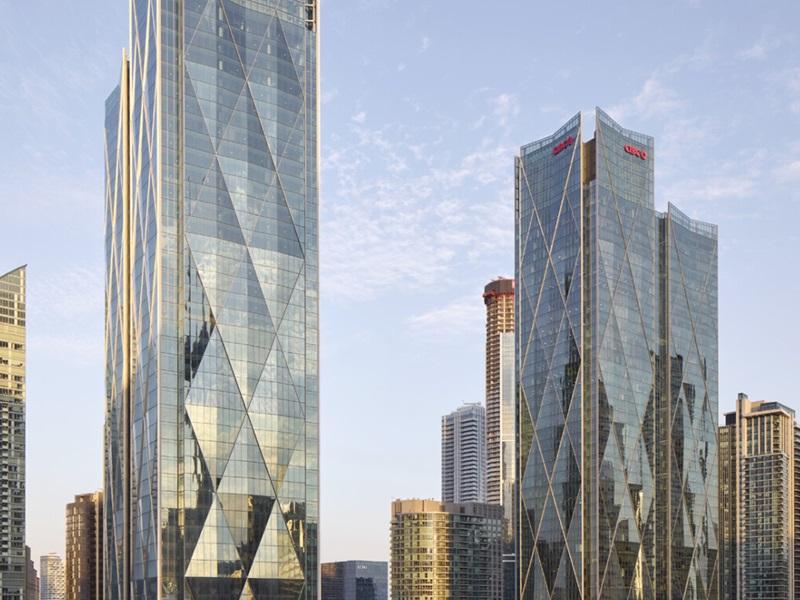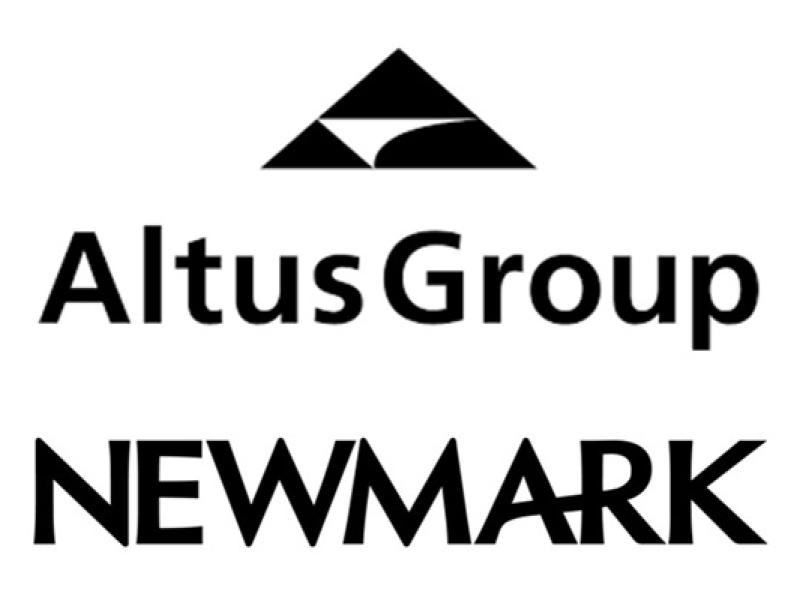
When one looks around B.C.'s Lower Mainland, there are some familiar names behind some of the development and real estate businesses in the region: Aquilini, Gaglardi (Northland Properties), Bosa, Chard and Ilich (Townline Development), to name a few.
The real estate and development business is often a family affair.
It would be easy to assume that the generations that came to those businesses after the elders got things started had an easy row to hoe; that they came into a fruitful inheritance and success was inevitable.
It's not so simple, however, a group of next-generation real estate leaders explained during a panel at the recent Vancouver Real Estate Forum which focused on family succession in the development business.
In the far-ranging conversation and look back at how a family development business can achieve longevity, continuity and — perhaps most importantly — healthy family relationships, three key themes emerged that others in the business should keep in mind if they want the family name or company legacy to press on smoothly.
There’s more than one way to learn the business
Colin Bosa, CEO of Bosa Properties, said his father started in the family construction and development business in the 1960s with his brothers.
The elder Bosa eventually started his own construction business in the 1980s, with Colin and his brother joining the business in the decade that followed and helping to convert it into an international real estate business.
"My dad, being a high school dropout, really didn't value education . . . so we started on the job sites when I was 11 years old," Colin Bosa said.
"As an 11-year-old, being asked, or being told, to go work on a job site, I can tell you, there's no 11-year old that wants to do that," he said. But, that exposure gave him a view of the business from the ground up.
Those experiences eventually inspired Bosa to join the family business, which has so far built 10,000 homes and manages 5.5 million square feet of commercial space. Bosa has 4,000 rental homes and 7,000 condos in its development pipeline.
"I can recall sitting at home listening to my father and his brothers talk about (the business),” Bosa says. “I was just really enamoured."
Later on, to learn the ropes as an adult member of the company, Bosa found his best strategy was to get intimately familiar with the homes it — and others — were building.
"I visited every show home . . . literally. I knew every square footage, price per foot of every building, who was selling what . . . because not only did I want to understand marketing, but I wanted to understand how each organization went about their market share."
Rick Ilich, the CEO of Townline, said he had worked for his father’s construction and development company off and on as a young man, “but I think he and I were just too alike to spend too much time in the same room.”
Ilich then worked for a separate company performing development co-ordination and started investing his own money in the real estate markets of communities like Prince George and Fort St. John. Then he started his own development company.
"It just came down to being inquisitive, eager and hungry for money,” Ilich said. “I just really enjoyed being the guy . . . making the mistakes and (finding) the avenues." Today, Townline is a condo developer, rental home builder and fee-for-service provider for social housing developments.
Byron Chard, whose father started Chard Development in 1994, said his early days in the family business required him to go to the sales centre and figure out how to sell a home himself. "It was (about) getting to the heart of our sales process."
The elder Chard also made a habit of bringing his son to every meeting with clients, brokers, bankers and partners. "I was really just learning how to run a company,” Chard said, adding that meant figuring out the various personalities and relationships in the industry, but also the day-to-day tasks that had to get done.
Be mindful of how business is handled around the dinner table
Bosa recalls grappling as a youngster with whether he really wanted the business as part of his future. "I can remember a lot of nights where my dad would get up from the dinner table, take a phone call, get very emotional, very upset about something that happened at work that day.
"I saw the two sides of family business, and business in general," Bosa said, adding that seeing “the good and the bad” helped to shape his own leadership style.
Ilich says thrusting family members or children into the business can be a dangerous move. The obligation, in some cases, could become a burden. "There is a huge responsibility," he said. "You've got to be prepared to grow (the business), to protect it, shift gears, pay attention to the shifting winds and the cycles."
These are companies with deep payrolls, staff and portfolios that must be managed with utmost care and attention — and the desire to be a part of it.
Ilich guesses his own children probably won't want to get involved with Townline as operators. "They'll certainly have that door but . . . They just haven't tasted the ups and downs of it."
You also don't want to mess around with your kids' sense of purpose, Ilich added.
Balancing family and the company is part of life when you’re in business together, Chard noted. "There's a different level of trust and conversation at the dinner table . . . or after you've closed that deal, with just how that went around.”
For Chard, there was "definitely osmosis at the dinner table" with plenty of conversations about work and late-night phone calls or disruptions to vacations. It was mostly a positive example of problem-solving without allowing the emotion of relationships to get involved, he recalled.
Focused, sensible succession is key to continuity
Bosa recalls a Warren Buffett line about inheritance. "Leave your kids enough that they can do whatever they want. Don't leave them so much (that) they can do nothing."
Bosa said he wants his family members to focus on doing something productive and meaningful and finding their own passions instead of being thrust into the family development business without question: "That's the most important thing."
Chard agrees. He said the burden can sometimes be too much for the next generation to bear.
He said he bought into the family business and rejects the notion that it was an inheritance. "But I also do think I have a privilege that sits with this . . . and the opportunity in front of me."
Succession that's focused and sensible is a key to continuity, Chard believes. "One of the best things that my father set up was the advisory board. He set it up about a year before I took over the company, so now it's four individuals who are purely advisory."
They meet regularly as a way to plan the business, discuss challenges and mitigate issues.
Chard said that layer of input is important because he runs the business differently than his father although based on the same values. "My father ran the company on his gut feeling and I would say I'd run it on data."
Ilich, whose own children are too young at this point to enter the business, said their structure is wrapped around a system of shareholders, board members and advisors.
"We're trying to figure out how to best manage the money that the company continues to build without messing up these kids' lives and without taking away their purpose."
EDITOR'S NOTE: This article was updated to correct the spelling of Townline CEO Rick Ilich's name. RENX sincerely regrets the error.









